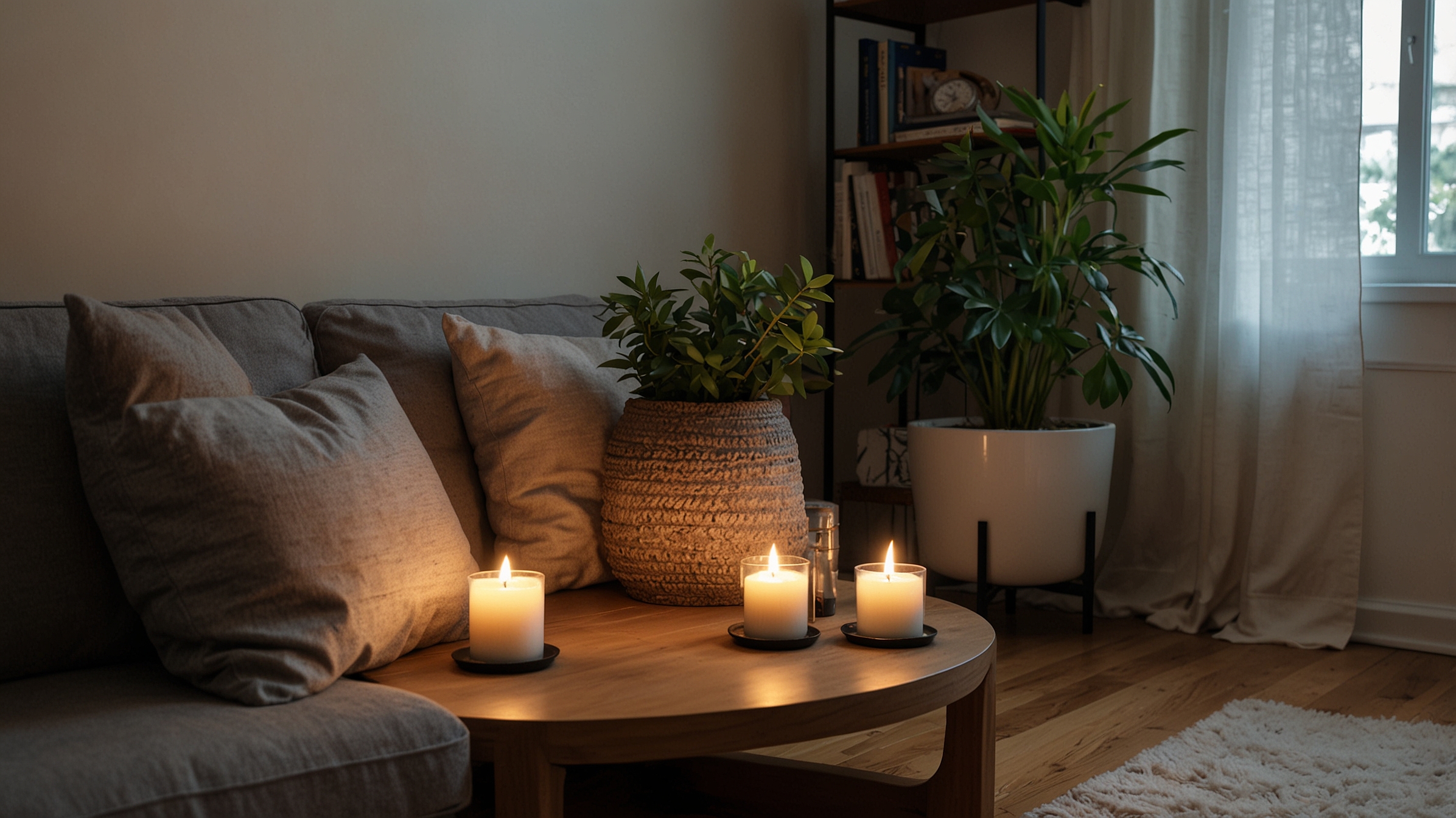Tips for setting up a personal sanctuary—no matter the size of your living space
In the fast pace of modern life—where emails arrive faster than we can answer them and phone screens seem glued to our palms—it’s no wonder we long for a space that invites us to slow down and simply breathe.
Enter the Zen corner—a small, intentional sanctuary within your home where peace, mindfulness, and clarity reign. You don’t need a sprawling yoga studio or an entire room to create one. Even the tiniest nook can become a powerful refuge from the noise of the world.
Here’s how to carve out your own Zen corner, no matter your square footage, and turn a piece of your home into a wellspring of calm.
Why a Zen Corner Matters
We often think of relaxation as something we’ll get to later—after the kids are asleep, after work slows down, after one more scroll through our feed. But rest and mental clarity aren’t luxuries—they’re essential.
Having a dedicated space to pause, reflect, and recharge—even for just five minutes a day—can:
- Reduce stress and anxiety
- Improve focus and creativity
- Encourage mindfulness
- Support better sleep
- Strengthen emotional well-being
A Zen corner signals to your brain: this is where we slow down, soften, and let go.
Step 1: Choose Your Space
You don’t need much. A Zen corner can be:
- A window seat with soft light
- A corner of your bedroom or living room
- A small balcony or even a closet nook
- A spare area under the stairs
The only real requirement is that it feels separate from your busier, task-oriented areas. Pick a space you can return to regularly, even for a few moments a day.
Step 2: Clear the Clutter
Before you add anything, remove distractions. Zen spaces are defined by simplicity. That doesn’t mean sterile—but intentional. Keep only what is useful, meaningful, or soothing. If it doesn’t contribute to calm, it doesn’t belong.
A few helpful ideas:
- Remove paperwork, tech devices, or clutter piles
- Store visible cords or electronics out of sight
- Keep surfaces clean and open
Less stuff equals less mental noise.
Step 3: Choose Your Anchors
Zen doesn’t mean minimalist for the sake of it. It means choosing objects that serve a purpose—either functional or emotional. Consider these calming anchors for your corner:
- A meditation cushion or cozy chair: Comfort matters. Choose a seat that invites stillness.
- Soft lighting: A salt lamp, string lights, or candles can soften harsh edges.
- Natural elements: Add a plant, some river stones, or a piece of driftwood to connect with nature.
- A calming scent: Essential oils, incense, or natural soy candles in lavender, sandalwood, or eucalyptus promote relaxation.
- Textures: A soft throw, a handwoven rug, or a natural wood surface can ground the space.
- A sound element: A small water fountain, wind chime, or meditation music playlist adds a layer of serenity.
Choose 3–5 elements that speak to you. A Zen corner is deeply personal.
Step 4: Define Its Purpose
What do you want your Zen space to do for you? It could be:
- A meditation nook
- A reading retreat
- A journaling spot
- A space to practice breathwork or yoga
- A place to pause between tasks
Defining the purpose helps guide how you use the space—and helps you return to it with intention.
You might keep a small basket nearby with essentials: a journal, pen, a favorite book, a deck of affirmation cards, or a soothing tea blend.
Step 5: Keep It Sacred
Once your Zen corner is created, treat it as a non-negotiable part of your day. Even five minutes can make a difference. The point isn’t perfection—it’s presence.
Set gentle boundaries:
- No phones unless used for calming music or guided meditation
- No multitasking (emails, work, etc.)
- No pressure—this is your non-productive zone
Over time, your body and mind will associate this space with safety, quiet, and renewal.
Real-Life Zen Corner Ideas
- Tiny Apartment: A floor cushion beside a bookshelf with a lantern and incense tray
- Busy Family Home: A reclaimed closet space with soundproof curtains and fairy lights
- Studio Loft: A corner with a yoga mat, essential oils, and a large plant for visual privacy
- Backyard Patio: A rocking chair surrounded by herbs and wind chimes
It doesn’t matter how polished or Pinterest-worthy it is. It matters that it feels right to you.
Conclusion: Stillness Is Within Reach
Creating a Zen corner isn’t about aesthetics—it’s about intention. It’s a quiet rebellion against the speed of the world, a declaration that your peace matters, and a gentle reminder to return to yourself again and again.
In a world that constantly asks you to do more, a Zen corner whispers a different message: Just be.





